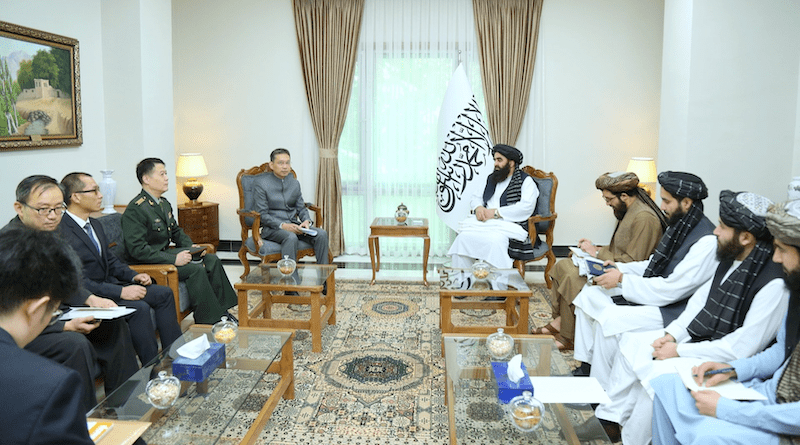China’s Complex Engagement With Afghanistan: Balancing Diplomacy, Security, And Economic Interests – OpEd
China’s role in Afghanistan has garnered increasing attention since the Taliban’s resurgence in 2021. Beijing is one of the few nations that have maintained a diplomatic presence in Kabul, signaling its interest in the region’s geopolitics. While it may appear that China and the Taliban are closely cooperating, experts assert that this relationship is predominantly transactional and defined by specific national interests.
Beijing’s primary concern in Afghanistan revolves around the Turkestan Islamic Party (TIP), an extremist group linked to unrest in China’s Xinjiang province. The TIP, previously known as the East Turkestan Islamic Movement (ETIM), is primarily composed of Uyghurs. China has accused the Taliban of sheltering Uyghur militants, which has yet to alleviate its security concerns. The movement of Uyghur fighters from Afghanistan’s Badakhshan province near China’s border is an attempt to allay Beijing’s fears. In response, China has insisted that the Taliban sever all ties with these Uyghur militants and hand them over to China. The exact number of Uyghur fighters in Afghanistan is unknown but is estimated to be in the hundreds. China’s foremost priority in Afghanistan is convincing the Taliban to address this issue.
Transactional Relationship
Experts emphasize that China’s engagement with Afghanistan is transactional, driven by a pragmatic pursuit of its national interest. Rather than pursuing profit-seeking ventures, China’s engagement appears more about safeguarding its national defense. As Barnett Rubin, an academic and former U.S. State Department adviser on Afghanistan, states, “China is not a ‘friend’ of the Taliban and can be relied on only to pursue its national interest.”
The Taliban’s return to power has left Afghanistan in dire economic straits and a humanitarian crisis. International donors have significantly reduced financial assistance, adding to the economic collapse triggered by the Taliban takeover. Afghanistan’s economic recovery is paramount for the Taliban government’s domestic and international legitimacy.
In this context, the Taliban seeks Chinese investment in Afghanistan’s vast untapped mineral resources. While China has faced criticism for its infrastructure projects worldwide, characterized by some as exploitative, the Taliban appears eager to secure Chinese investment. The Taliban has actively sought Chinese involvement in projects such as a $10 billion lithium extraction initiative, which could provide employment opportunities for over 120,000 Afghans.
Conclusion
China’s engagement with Afghanistan is multifaceted, balancing diplomacy, security, and economic interests. While China’s role may suggest a growing alliance with the Taliban, the relationship remains transactional and motivated by specific national interests. China’s chief concern in Afghanistan is addressing the threat posed by the Turkestan Islamic Party and ensuring that the Taliban takes appropriate measures to combat it. Furthermore, the economic crisis in Afghanistan overshadows all other concerns, and the Taliban’s ability to address this issue is crucial for its domestic and international support. This economic incentive has driven the Taliban to actively seek Chinese investment in various projects, indicating the complex nature of China’s engagement in Afghanistan. As the geopolitical landscape in the region evolves, China’s role in Afghanistan will continue to adapt to the ever-changing dynamics of this volatile nation.

